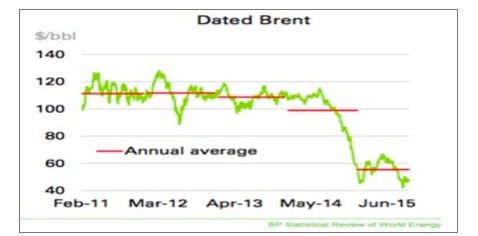Oil has for decades been perceived as a necessary and highly addictive energy commodity, fueling the world economy. It is a crucial input good for most of the net-oil consumer countries, and it is an important source of revenue for the net-oil supplier countries. This means that any changes in the oil price will affect the entire world economy. Chloé Le Coq and Zorica Trkulja from Stockholm Institute of Transition Economics have written a policy brief that explains to what extent the oil-price fluctuations matter for the economy.
Oil market can be viewed as a global and liquid market, therefore the world market price for oil is the reference price for many market participants. This implies that many non-oil, but oil-related, markets are interlinked. A change in one of them is therefore likely to affect the others. The oil market’s dynamics have the tendency to change dramatically due to technological changes and political events, resulting in price fluctuations affecting the entire world economy.
It is important to note that there are two different aspects of oil-price changes. As seen in Figure 1, besides a sharp fall in the price level from May 2014 and onwards, the oil price tends to be highly volatile and unstable throughout the year. Price of Oil

